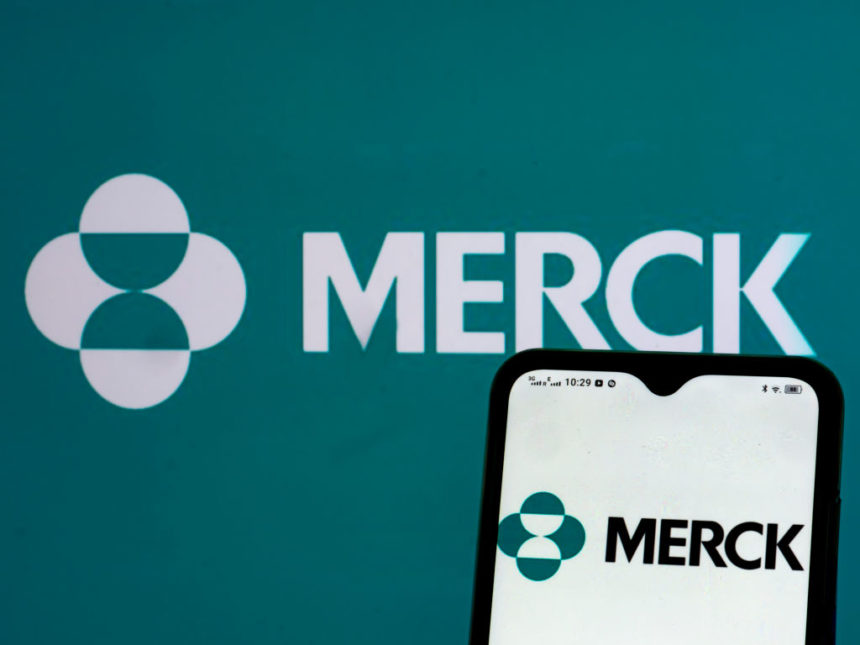Over the weekend, Merck held an investor call highlighting a gamut of strategies for extending Keytruda, its lucrative yet aging cancer franchise. Leaders said they hope to add indications, push into earlier-stage disease and forge novel combinations based on Keytruda’s PD-1 backbone.
The pharma company’s recently announced deal with Daiichi Sankyo, along with datasets shared during the European Society for Medical Oncology (ESMO) meeting, checks off each of those boxes to diversify Keytruda’s growth prospects.
Late last week, Merck said it will pay $5.5 billion in upfront costs and another $16.5 billion in potential milestones for three clinical antibody drug conjugates (ADCs) from the Daiichi platform. Terms call for the drugmakers to co-develop and co-commercialize patritumab deruxtecan (HER3-Dxd), raludotatug deruxtecan (CDH6; R-Dxd) and ifinatamab deruxtecan (B7H3; I-Dxd).
“We continue to augment and diversify our oncology pipeline while building on our immuno-oncology foundation,” said Merck chairman and CEO Robert Davis. ADCs, he added, have “far-reaching potential…to provide meaningful new options for patients.”
In aggregate, Merck and Daiichi Sankyo said in a joint statement, the three programs have “multi-billion dollar worldwide commercial revenue potential” approaching the mid-2030s.
Unmet need in the diseases in which these products are studied is substantial enough to justify that revenue potential, noted UBS analyst Trung Huynh, although he called for more data to justify the price paid.
In a note to investors over the weekend, Huynh added that, based on available data, the deal terms seem expensive. That said, “management highlight [that] Daiichi Sankyo has proven activity and experience in ADC (see Enhertu).”
The furthest along of the Daiichi assets is HER3-DXd. Following positive results from the Phase 2 HERTHENA-Lung01 trial in EGFRmut non-small cell lung cancer, HER3-DXd is expected to reach BLA filing by the end of March 2024. R-DXd and I-DXd are currently in earlier stages of clinical development for kidney/ovarian cancer and small-cell lung cancer, respectively.
Then there were the datasets, which stoked optimism in ADCs as a cancer-fighting modality. On Sunday afternoon at ESMO, Merck presented results of Keynote-A39, a Phase 3 study pairing Keytruda with Seagen’s ADC Padcev in first-line metastatic uterine cancer. Keytruda and Padcev, a combo dubbed EV-302, prolonged overall survival (OS) by 53% versus chemo, prompting a standing ovation at a headline session, the “Presidential Symposium.”
“This is the first-time an IO/ADC combination has shown an OS benefit over chemo, highlighting Keytruda combinations could be critical for the ADC strategy,” Huynh observed.
“The discussant provided the clear message that the EV-302 regimen is likely to become the new standard-of-care in 1L mUC regardless of cisplatin eligibility,” added Goldman Sachs analyst Chris Shibutani in a Monday note.
Analysts were similarly high on the Phase 3 KEYNOTE-671, also deemed potentially practice-changing. In the trial, testing Keytruda in neo-adjuvant/adjuvant NSCLC, OS data were consistent with topline survival data shared prior.
Researchers also shared OS subgroup analyses, all of which consistently skewed toward favoring the Keytruda arm of the study. The readout came on the heels of the Food and Drug Administration’s approval last week of Keytruda in neo-adjuvant/adjuvant NSCLC.
“In our channel checks, physicians had been hesitant to use this combination in this setting,” UBS’s Huynh recalled. “But the OS data presented at ESMO now provides a compelling reason.”
With Merck now coupling Daiichi’s ADC platforms with its own oncology clinical development and commercialization capabilities, the structure is expected to provide pathways to expanding opportunity. Indeed, the Daiichi deal was another example of Merck’s existing interest in the potential of ADCs.
Its prior collaboration with Kelun Biotech focuses on a series of ADC assets, with the TROP2-directed MK-2870 being the most developmentally advanced. In June, the duo of MK-2870 plus Keytruda demonstrated a “striking” early clinical signal in patients with advanced, epidermal growth factor receptor mutation positive (EGFRmut) NSCLC.
In addition to Merck, other companies are testing ADCs targeted toward TROP2 with checkpoint inhibitors as a new option for treating NSCLC. A Gilead-backed trial pairing its TROP2 agent Trodelvy with Keytruda recently yielded promising results. Meanwhile, Daiichi and AstraZeneca also partner on the TROP2-directed agent datopotamab deruxtecan (Dato-DXd), along with Daiichi’s Enhertu, a HER2-directed ADC.
In fact, some may speculate that the three ADCs in the Merck/Daiichi collaboration are merely — as UBS’s Huynh put it, positing the bear case — “AstraZeneca rejects.”
‘We think that it is unlikely,” Huynh wrote.
First of all, he explained, HER3-Dxd has the potential to be combined for use in the early EGFRmut NSCLC setting, where it’s expected to be used primarily in patients who have already tried a tyrosine kinase inhibitor (TKI) such as AstraZeneca’s own Tagrisso.
In fact, Huynh wrote that he found it puzzling that AstraZeneca would “turn down potentially owning the entire EGFR mutant NSCLC market with HER3-Dxd and further market expansion with I-Dxd and R-Dxd,” he noted. Instead, the deal with Merck offers Daiichi “an opportunity to diversify and establish a relationship with the leading PD-1 franchise.”
Merck’s moves are also reflective of broader biopharma industry sentiment, with several recent examples of big pharma seeking additional exposure to the ADC modality. These include Pfizer’s $43 billion acquisition of Seagen, which markets several ADCs, announced last March. Last year, Eli Lilly signed an agreement with immunoGen to license the biotech’s novel camptothecin ADC platform for up to $1.7 billion.
Overall, analysts were positive on the Daiichi deal. With Keytruda set to lose patent exclusivity in 2028, the deal could fortify its growth outlook late in the decade and early into the next one.
“Net, we view this deal as a positive for MRK,” Shibutani concluded. The revenue generated could provide “another step towards alleviating the evergreen question of post-Keytruda revenue sources.”
To read a January 2024 article on Enhertu snagging an FDA priority review in solid tumors, click here.
To read a March 2024 article on Merck’s Winrevair earning FDA approval in a milestone moment for PAH treatment, click here.







